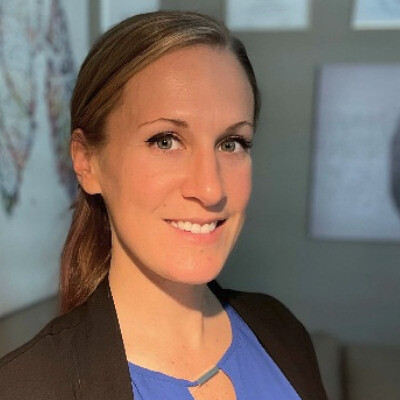Management Reasoning: The Real Teamwork Begins After the Diagnosis
Management reasoning—the cognitive and contextual processes that guide patient care decisions after a diagnosis—is an essential yet underdeveloped element of interprofessional education. It connects treatment planning, care progression, patient preferences, and resource use with the realities of collaborative clinical decision-making. Aligned with the Nexus Summit 2025 theme of preparing students for interprofessional collaborative practice, this 60-minute seminar introduces management reasoning as a critical mindset that bridges clinical reasoning and interprofessional team-based care.
While clinical reasoning within individual professions is well-studied, we know little about the processes involved in interprofessional management reasoning—the shared deliberations about care plans, priorities, and next steps where the patient is a key team member. A central concept is purposeful shared decision-making (SDM), which is problem-focused and integrates patient values, institutional constraints, and the evolving nature of care.
Attendees will explore how physical therapy, occupational therapy, and pharmacy professionals contribute uniquely and synergistically to team-based management reasoning. Through analysis of a real-world inpatient case, participants will uncover the reasoning processes underlying interprofessional collaboration, clarify how management reasoning differs from general IPECP, and explore practical strategies to teach it.
Learning Objectives:
Define management reasoning and describe its relevance across PT, OT, and pharmacy.
Distinguish management reasoning from IPECP, identifying overlapping and unique roles.
Reflect on strategies to support management reasoning development in learners across didactic and clinical settings.
Actionable Practice Knowledge:
Attendees will leave prepared to model cognitive transparency in clinical teaching, integrate management reasoning into interprofessional rounds or handoffs, and engage students in discussions that make invisible decision-making visible.
Active Learning Strategies:
To accommodate virtual learners, all engagement occurs in the main session without breakout rooms. Activities include:
Chat-based reflective prompts
Guided role-based case analysis using a shared worksheet
Group discussion to deconstruct interprofessional reasoning and decision points
Priority Criteria Fulfillment:
This seminar advances interprofessional collaborative practice by shifting the educational focus beyond diagnosis to the shared management of care. It equips educators to help learners engage in transparent, coordinated, and patient-centered care planning across disciplines.
In support of improving patient care, this activity is planned and implemented by The National Center for Interprofessional Practice and Education Office of Interprofessional Continuing Professional Development (National Center OICPD). The National Center OICPD is accredited by the Accreditation Council for Continuing Medical Education (ACCME), the Accreditation Council for Pharmacy Education (ACPE), and the American Nurses Credentialing Center (ANCC) to provide continuing education for the healthcare team.
As a Jointly Accredited Provider, the National Center is approved to offer social work continuing education by the Association of Social Work Boards (ASWB) Approved Continuing Education (ACE) program. Organizations, not individual courses, are approved under this program. State and provincial regulatory boards have the final authority to determine whether an individual course may be accepted for continuing education credit. The National Center maintains responsibility for this course. Social workers completing this course receive continuing education credits.
The National Center OICPD (JA#: 4008105) is approved by the Board of Certification, Inc. to provide continuing education to Athletic Trainers (ATs).
This activity was planned by and for the healthcare team, and learners will receive Interprofessional Continuing Education (IPCE) credit for learning and change.


Physicians: The National Center for Interprofessional Practice and Education designates this live activity for AMA PRA Category 1 Credits™. Physicians should only claim credit commensurate with their participation.
Physician Assistants: The American Academy of Physician Assistants (AAPA) accepts credit from organizations accredited by the ACCME.
Nurses: Participants will be awarded contact hours of credit for attendance at this workshop.
Nurse Practitioners: The American Academy of Nurse Practitioners Certification Program (AANPCP) accepts credit from organizations accredited by the ACCME and ANCC.
Pharmacists and Pharmacy Technicians: This activity is approved for contact hours.
Athletic Trainers: This program is eligible for Category A hours/CEUs. ATs should claim only those hours actually spent in the educational program.
Social Workers: As a Jointly Accredited Organization, the National Center is approved to offer social work continuing education by the Association of Social Work Boards (ASWB) Approved Continuing Education (ACE) program. Organizations, not individual courses, are approved under this program. State and provincial regulatory boards have the final authority to determine whether an individual course may be accepted for continuing education credit. The National Center maintains responsibility for this course. Social workers completing this course receive continuing education credits.
IPCE: This activity was planned by and for the healthcare team, and learners will receive Interprofessional Continuing Education (IPCE) credits for learning and change.
Learners can claim CE credit by completing the Daily Evaluation.



